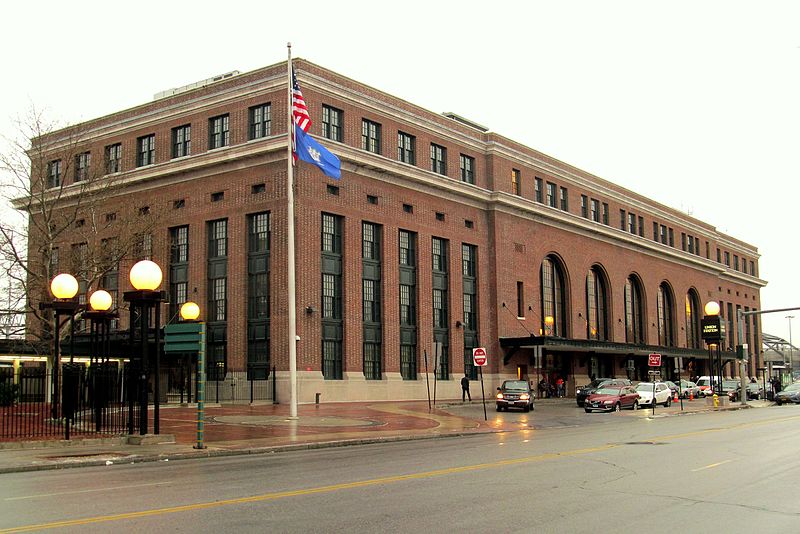Connecticut leaders are moving ahead with a $60-million parking garage next to another garage at New Haven’s Union Station instead of housing because the state’s transportation commissioner doesn’t think people want to live within walking distance of a train station.
“Putting a [transit-oriented development] next to an active rail yard has never worked successfully because of the constant noise of the trains moving, the horns blowing — all the things that people don’t want to live next to,” state Department of Transportation Commissioner Joseph Giulietti, said at an unrelated press conference in New Haven last week.
“I am saying we need another garage," Giulietti added. "But we are willing to work with the city to find a solution that will work for both sides."
The Nutmeg State plans to construct a hulking six-story 1,000-space garage down the street from an existing five-story garage on Union Avenue. The structure would contain retail stores at the street level, according to New Haven Mayor Toni Harp, but transit advocates hoped it would be scrapped entirely because the structure will only attract more gas-spewing vehicles clogging downtown streets. The construction of housing and office space — plus improving bus transit to the station — are better solutions, advocates say.
“That’s why we have sound-proof glass,” New Haven Urban Design League president Anstress Farwell told Streetsblog. “This is an area that is a diesel hot zone. If you do something that will add even more traffic where there’s elderly people and you have a street that’s not functioning properly with poor traffic and no bike lanes you’re just going to be compounding the problem.
In January, the New Haven Urban Design League argued in a 37-page report that the garage project would not only "snarl major city streets" and have little impact reducing highway traffic, it would also employ few workers and contribute no taxes.
"Since the new state garage was proposed, studies by transportation experts have shown that building a garage has the same result as building new highway lanes — both induce more demand, and the congestion and parking supply problems are amplified," the report said. "The solution to congestion and parking supply problems is to build all manner of alternatives — walkable streets, mixed-use developments near stations, improved public transit, and safe bike lanes."
Unlike parking spaces, transit-oriented development can generate a hefty economic returns for cities especially if government supports it through rezoning to encourage housing, creating a plan for the area, and promoting the transit. For instance, Cleveland turned a $50-million investment in bus rapid transit into $5.8-billion in new development by putting the bus route in a strategic corridor linking downtown with the Cleveland Clinic, spurring redevelopment there, the Institute for Transportation and Development Policy found in a 2013 study.
Lamont seems to recognize the value of having development near a train station and high-speed rail service between Boston and New York, explaining it “brings back our cities to life," and "it makes it easier for young people here, easier for people to give up an auto to get to work” while promoting his bus fare-for-tolls plan."
The Lamont administration may be given the benefit of the doubt, since Giulietti has a rail background as the former MetroNorth president, but it remains unclear whether the state legislature will want to pump tens of millions of taxpayer dollars into a parking garage with vocal opposition. And with Harp facing re-election in November, her opponents could make the city's transit problems an issue in the race.
"We’re fighting back. We’re probably going to have a public forum soon," Farwell said. "I think this will end up being an issue that some of her opponents will bring up and use against her.”






